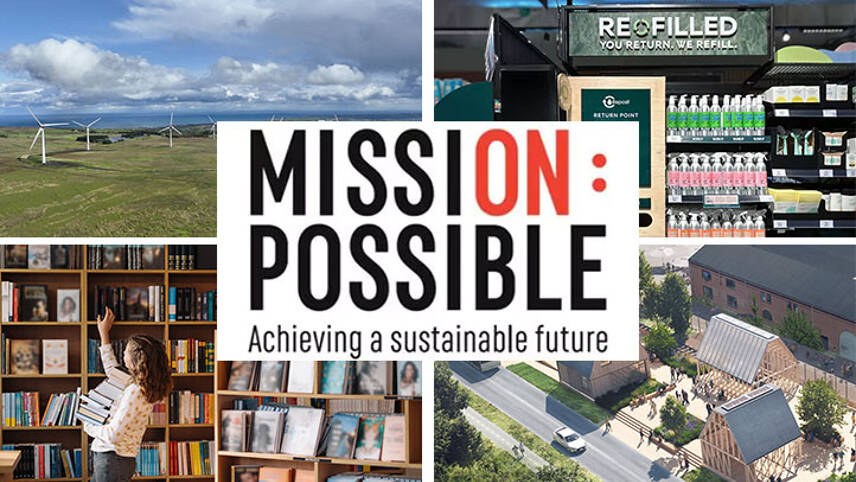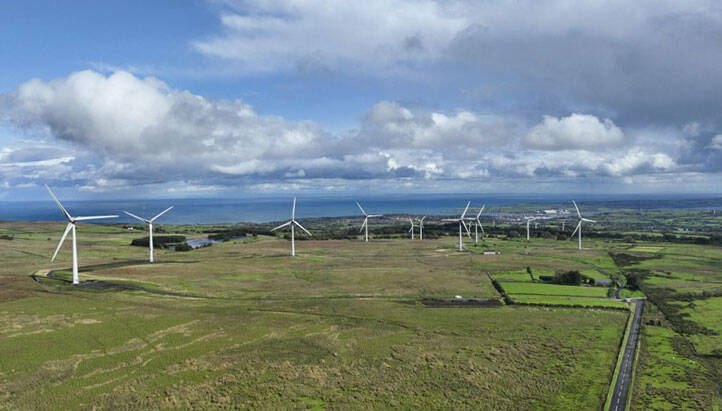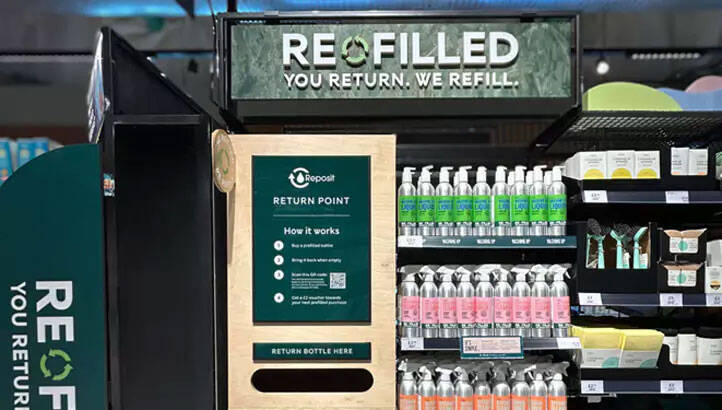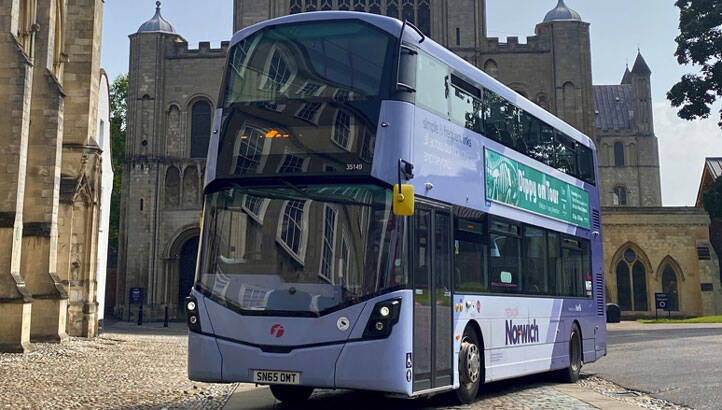Register for free and continue reading
Join our growing army of changemakers and get unlimited access to our premium content

Published every week, this series charts how businesses and sustainability professionals are working to achieve their ‘Mission Possible’ across the campaign’s five key pillars – energy, resources, infrastructure, mobility and sustainability leadership.
Across the UK and across the world, leading businesses, cities, states and regions are turning environmental ambitions into action. Here, we round up five positive sustainability stories from this week.
ENERGY: New onshore wind farm, backed by Amazon, launches in Northern Ireland
E-commerce giant Amazon was the largest corporate buyer of renewable energy in 2022. It purchased 10.9GW of clean power, partly through tariffs and partly via Power Purchase Agreements (PPAs) with the developers of energy generation projects.
Building on this, a 16MW wind farm was opened in Northern Ireland this week – enabled with the support of Amazon. Ørsted developed the seven-turbine onshore array in Ballykeel, which will supply electricity directly to Amazon.
This is slated as the first renewable energy project to be delivered under a corporate PPA in Northern Ireland.
Amazon’s director of energy for the EMEA region, Lindsay McQuade, said: “Wind energy plays a critical role in decarbonising both Amazon’s operations and the Irish grid, and we’re proud to invest in renewable energy projects like the Amazon Wind Farm Northern Ireland – Ballykeel.
“Today at Amazon, we power 90% of our operations with renewable energy, and projects like Ballykeel and more than 400 other wind and solar projects around the world will help us on our path to reach 100% by 2025.”
RESOURCES: UK-based refillable packaging collaboration targets rapid expansion
Given that just 9% of the plastics produced to date have been successfully recycled, reuse is increasingly seen as a more robustly sustainable option for consumer goods brands,
But shifting to a reusable model comes with a myriad of challenges. Just 2% of the products sold by the world’s largest consumer goods firms in 2020 were housed in reusable packaging.
Seeking to change that is Reposit – a collaboration for reusable packaging spearheaded by Scottish brand Beauty Kitchen. The scheme is providing shoppers with pre-filled products including cleaners, personal care products and cosmetics, and enabling them to drop off empty packaging in a different place than where they made their initial purchase.
Reposit announced this week an ambition to scale to cover 100 product lines across 200 stores by the end of June 2024, following successful trails in M&S. Brands and retailers are being asked to register their interest before the end of October 2023.
MOBILITY: Ground broken for infrastructure supporting all-electric bus depot
With all the talk of electric cars for individuals in the news, it can be easy to overlook the electrification of public transport. Some 112,000 electric buses were sold in 2022 and sales are set to soar to 670,000 per year in 2027.
Charging infrastructure is, of course, needed to support these buses. This week, UK Power Networks confirmed that it had started work to enable the electrification of the Roundtree Way bus depot in Norwich.
It has begun installing new underground cables and enhancing a local substation to ready the depot, operated by First Bus, to host a fully electric fleet by the end of March 2024. The depot will act as a base for 70 buses.
First Bus is aiming for all of its buses in the UK to operate with zero tailpipe emissions by 2035.
The firm’s managing director for the East of England, Piers Marlow, said: “The electric buses will not only improve the journey experience for our customers, they will significantly reduce carbon emissions, each saving up to 60 tonnes per year, and will improve air quality for the city, creating a cleaner, greener environment for people to live, work and enjoy.”
THE BUILT ENVIRONMENT: Dutch housebuilder to adopt ‘Living Places’ principles
Earlier this year, VELUX Group presented concept homes in Denmark which had a carbon footprint three times lower than the national average. The ‘Living Places’ concept was showcased in Copenhagen in a bid to influence and inspire businesses and policymakers. VELUX worked in partnership with architect studio EFFEKT and engineering consultants Artelia on the display.
Now, Dutch housebuilder Bouwgroep Dijkstra Draisma has pledged to build a full-scale prototype of a neighbourhood built to ‘Living Places’ principles in the northern part of the Netherlands. It is also exploring how to embed the principles in its broader standard development and construction processes.
Bouwgroep Dijkstra Draisma is the first developer to make this commitment.
Its chief executive Biense Dijkstra said: “The results that VELUX and their partners have achieved with their Living Places project are very inspiring and fit seamlessly with our vision regarding reducing the CO2 footprint in the built environment. We are looking forward to exchanging our knowledge and experience.”
SUSTAINABILITY LEADERSHIP: Literary industry takes a stand against fossil fuel finance
The push for fossil fuel divestment in arts and culture has proven successful in several high-profile cases. The Royal Opera House stopped accepting sponsorship from BP in January and the British Museum is considering following suit, to give but two examples.
Now, more than 130 representatives from the literary industry are calling on asset manages to stop financing fossil fuel initiatives if they wish to be supported in sponsoring literary festivals.
The initial target of ‘Fossil Free Books’ is asset manager Ballie Gifford, which sponsors 11 literary festivals plus a non-fiction prize scheme in the UK. Ballie Gifford is believed to have billions of pounds’ of investment in the fossil fuel sector and is a minority shareholder in the extremely controversial East Africa Crude Oil Pipeline (EACOP).
Fossil Free Books supporters include authors Naomi Klein, Rebecca Solnit, Rachel Edwards and Anita Roy, as well as youth climate activist Mikaela Loach.
Author and campaigner Ellen Miles said: ““We’re organising as workers because these festivals are our livelihoods and we care about them deeply.
“Literature festivals invite us to speak about the scale and urgency of the climate crisis. But we can’t speak about the climate crisis while ignoring the destructive outcomes of funding fossil fuel development.”







Please login or Register to leave a comment.